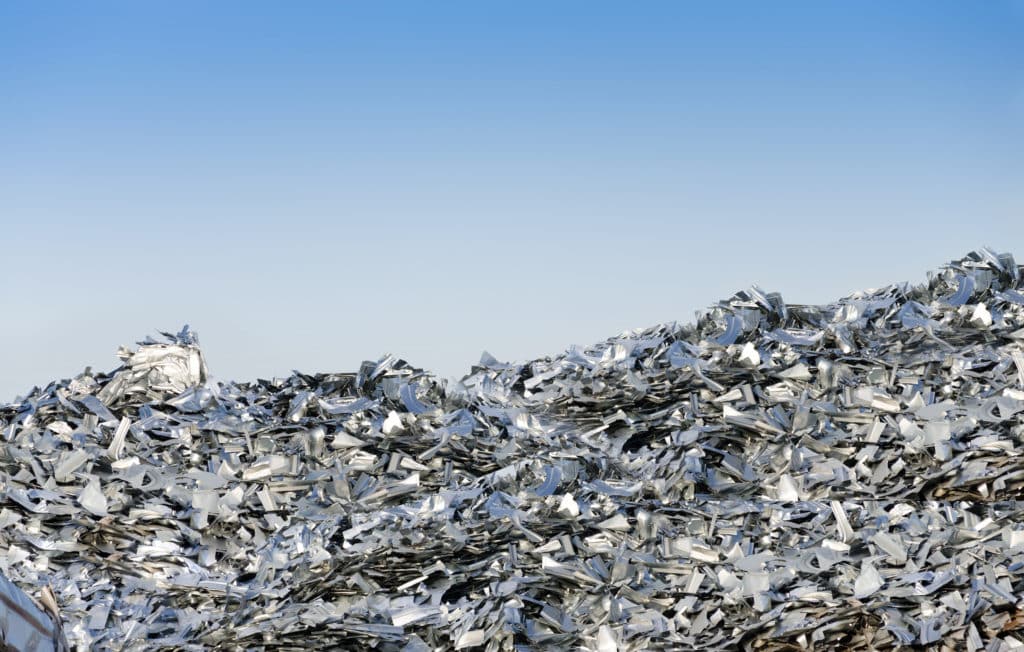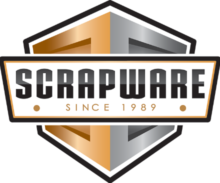Manufacturing planes, trains and automobiles—or lipstick tubes for that matter—have one similar output. These processes all create impressive piles of valuable scrap metal.
The manufacturing remnants are industrial scrap and are increasingly important in the circular economy.

The scrap metal recycling industry plays the key role in transforming this post-production scrap into new material that can be used to create new consumer and industrial goods.
Scrap metal recycling is important for both the environment and the economy. The growth in industrial scrap is a key component of its success. Most metals are infinitely recyclable—they can be recycled over and over again and not lose any of their properties. That means scrap metal can be repeatedly transformed into new material suitable for manufacturing and construction. Processing scrap metal, however, is significantly better for the environment then mining and refining brand new “virgin material.” Mining is considerably more expensive and disrupts natural habitats. The process of turning ore into usable material requires significantly more energy consumption than recycling. According to the Institute of Scrap Recycling Industries (ISRI) using recycled aluminum saves up to 95 percent of the energy needed to use virgin materials. For copper that amount is 85 percent and for steel there is a 74 percent energy savings. Finally, recycling scrap metal keeps it out of landfills. Not only does scrap metal recycling create environmental benefits, it also reaps economic benefits because the recycled materials are significantly less costly for manufacturers to use.
According ISRI, recycling can be divided into three categories—residential, commercial and industrial.
Residential recycling comes from households and commercial scrap is generally generated by retail establishments. What most people don’t understand is that industrial recycling accounts for a significant volume of the scrap generated today. In fact, residential recycling provides only about one third of the entire US supply of recycled material. According to the Bureau of International Recycling, about 40 percent of steel production today is made from scrap metal into recycled steel.
When consumers think of recycled metal, they usually only identify it in retail products. Aluminum, for instance, is normally associated with beverage cans. But this light metal is also widely used in home construction as a component in windows, siding and gutters. When a building is torn down, recycling this aluminum directly impacts consumers with lower priced cans. In fact, aluminum is known for its quick turnaround time–going from scrap yard to grocery store shelf in as little as 60 days!
The metal recycling industry helps facilitate industrial scrap recycling in many cases by handling the hauling, storage and transportation of the scrap at a manufacturing, demolition or construction site.
Recycling companies will place containers at a site where scrap metal can be disposed of. The recyclers buying the scrap metal will transport it to the recycling facility and replace it with another empty container. In some instances, large amounts of industrial scrap are put out for bid, with the recycling company placing the highest bid taking possession of the material.
ScrapWare Corp., of Rockville, MD, supplies and supports software for the scrap metal recycling industry.
ScrapWare users purchase industrial scrap from a variety of different sources–from bottling plants, sporting goods manufacturers, automotive and aerospace manufactures and from factory tear outs and building and bridge demolition projects. Electrical cable and cell tower cable provide another big source of industrial scrap. ScrapWare’s customers also process significant amounts of industrial borings and turnings that are copper, aluminum and brass. Borings and turnings are bi-products in manufacturing when metal is milled, drilled or otherwise shaped.
The ability to quickly and efficiently recycle a variety of this metal scrap has evolved with better technology, and scrap metal industry trends include utilizing an increasing amount of this technology. Separating and purifying different metals in the waste stream, especially in electronic waste, will continue to improve with advances in different metal sensing processes, for instance. The increasing demand for recycled metal will continue to push these advances.
The future of the scrap metal recycling industry will undoubtedly involve advancements in buying and processing industrial scrap metal and this will continue to benefit consumers and the environment. You can thank the scrap metal industry the next time you purchase a new appliance and remember that it may have once been a pile of metal scraps from a factory floor.
ScrapWare Corp., of Rockville, MD, has been providing software to the scrap metal recycling industry for over 30 years. ScrapWare uses an Oracle database to provide a cloud-based software solution to manage all aspects of a recycling business. With numerous modules, extensive technical support, remote installation and online training, ScrapWare helps recycling companies with compliance, efficiency and profitability. Check out ScrapWare’s website, read the user testimonials, and see its offerings for your recycling software solution.
